Online Gifts Delivery Anywhere Anytime...
Doviko

support@doviko.com(+91) 928 924 3767Contact Us
0item(s)
You have no items in your shopping cart.
Product was successfully added to your shopping cart.
Syngonium Plants Online
-
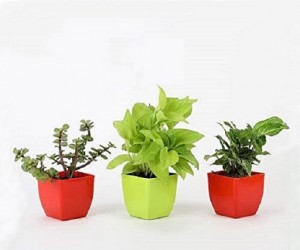 -13%Jade Plant, Money Plant, Syngonium Plant Combo in Plastic Pots
-13%Jade Plant, Money Plant, Syngonium Plant Combo in Plastic PotsRegular Price: ₹549
Special Price ₹479
-
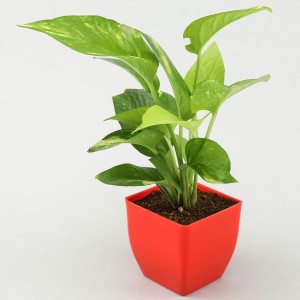 -28%Syngonium Plant in Red Plastic Pot
-28%Syngonium Plant in Red Plastic PotRegular Price: ₹249
Special Price ₹179
-
 -11%Green Syngonium Plants Combo in Green Plastic Pots
-11%Green Syngonium Plants Combo in Green Plastic PotsRegular Price: ₹449
Special Price ₹399
-
 -28%Green Syngonium Plant in Red Plastic Pot
-28%Green Syngonium Plant in Red Plastic PotRegular Price: ₹249
Special Price ₹179
-
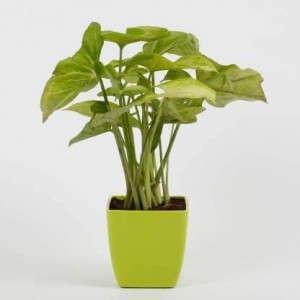 -20%Syngonium Plant with Green Square Plastic Pot
-20%Syngonium Plant with Green Square Plastic PotRegular Price: ₹349
Special Price ₹279
-
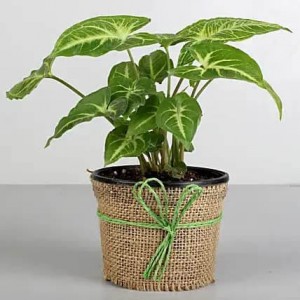 -28%Air Purifying Green Syngonium | Indoor Plant in Plastic Pot
-28%Air Purifying Green Syngonium | Indoor Plant in Plastic PotRegular Price: ₹249
Special Price ₹179
-
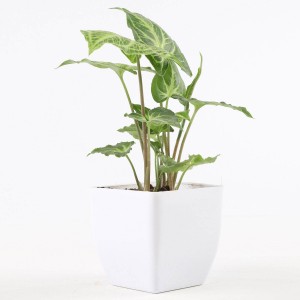 -28%Green Syngonium Plant in White Plastic Pot
-28%Green Syngonium Plant in White Plastic PotRegular Price: ₹249
Special Price ₹179
-
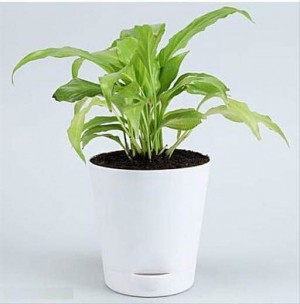 -23%Syngonium Plant in Self Watering White Planter
-23%Syngonium Plant in Self Watering White PlanterRegular Price: ₹299
Special Price ₹229
-
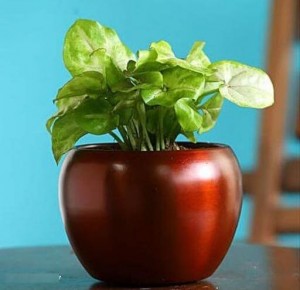 -20%Syngonium Plant in Red Metal Pot
-20%Syngonium Plant in Red Metal PotRegular Price: ₹349
Special Price ₹279
-
 -16%Green Jade Plant & Syngonium Plant Combo in Plastic Pots
-16%Green Jade Plant & Syngonium Plant Combo in Plastic PotsRegular Price: ₹449
Special Price ₹379
-
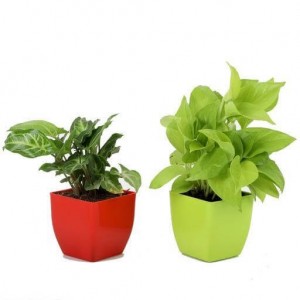 -20%Golden Money Plant and Syngonium Plant - Set of 2
-20%Golden Money Plant and Syngonium Plant - Set of 2Regular Price: ₹349
Special Price ₹279
-
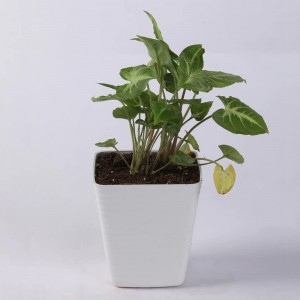 -40%Syngonium Golden Natural Plant in White Plastic Pot
-40%Syngonium Golden Natural Plant in White Plastic PotRegular Price: ₹249
Special Price ₹149
Loading ...Load More ...
Contact Information
Phone:
9289243767
Email:
support@doviko.com
Working Days/Hours:
Mon - Sun / 10:00AM - 7:00PM
Be the First to Know

